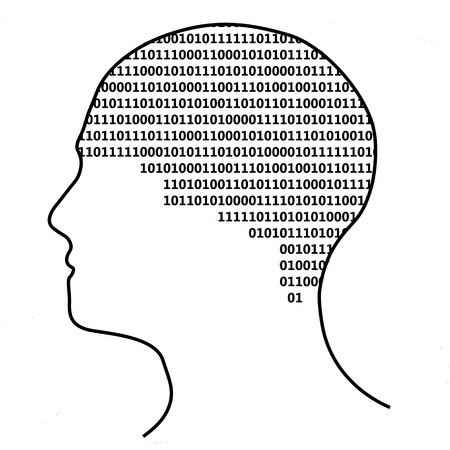An
article about the advances of Facebook in image recognition, which
allows you to establish search systems based on the content that appears
in them, it leads me to reflect on the importance of the availability
of data for the development of algorithms of machine learning and
artificial intelligence: no one escapes that the ability of Facebook to
develop these systems of processing and recognition of patterns in
images has to do neither more nor Less than with their chances of
accessing tens of millions of images tagged and commented on their users
in the network itself and Instagram Facebook.
When
it comes to thinking about the possibilities of artificial intelligence
for our business, we have to start with the possibilities we have to
get data to analyze. Data which, moreover, are not all created equal: it
is not just that the paper file is not going to serve us anything, but
also, we need formats and tools open enough to allow processing,
something that is not always easy when we talk about companies that, for
a long time, processed their data in legacy systems of difficult
integration.
The
fact of coming from a stage in which many industries have been
concerned about catching up on issues related to the so-called big data
facilitates to some extent that task: when you already have data
scientists in place, the least you can expect is that they have carried
out the cleaning and cataloguing of the data sources with which they
intend to count in their analytics and visualizations. But after the big
data, the next step comes: Artificial intelligence. In fact, progress
in artificial intelligence is leading the data scientists to realize
that they need to evolve into that discipline, or be considered obsolete
professionals.
The
data is the real gasoline that moves artificial intelligence. The
availability of data allows us to develop the best algorithms, and above
all, improve them over time to produce better results and adapt to
changing conditions. The availability of more and more data in
autonomous driving as its fleets do more and more kilometers is what
allows Tesla to reduce the number of disengagements, episodes in which
the driver is forced to take control, to the current levels: only
between October and November of last 2016, four autonomous vehicles of
the company travelled 885 km on California highways , and they
experienced 182 of those moments, in what represents a starting point
from which to continue improving with the accumulated experience. In
fact, Waymo, which has accumulated data for all experiments in
autonomous driving of Google, it achieved throughout the year 2016 to
bring down the number of these disengagements from 0.8 per thousand
miles, to 0.2, in what is an impressive progression fed, again, by the
availability of data to process.
The
real mistake in artificial intelligence is to try to judge an algorithm
by its results at the moment we obtain it, without taking into account
the progress it can achieve as it has more and better data. Write a
review about Echo of Amazon saying that it is little less than an alarm
clock with radio a little illustrated is an attitude that forgets the
fundamental: that with eight million devices on the market, the
possibilities that Amazon has to improve Echo's intelligence are
virtually unlimited, and that means that every time we will understand
better , which will gradually reduce its errors and become, without a
doubt, a device that we end up asking how we could live without it.
In
what sport can the arrival of arbitrators based on artificial
intelligence be considered first? Of course, in American football, the
classic example of sport in which everything is quantified, analyzed and
processed to the limit. Which insurance companies will be able first to
access the savings and improvements of the appraisal based on
artificial intelligence? Those that have large amounts of data correctly
stored and structured to be able to process and train with them to the
machine. What academic institutions will be the first to take advantage
of artificial intelligence in the educational process? Those that have
complete files, properly structured and prepared for their treatment.
And I can assure you that that, which seems so basic, does not have all
the institutions I know.
To
understand the evolution of the data to the machine learning and to the
artificial intelligence is, for any manager, increasingly important,
and for a company, more and more strategic. This is how you will decide
which companies end up which side of the new digital

0 comentarios: